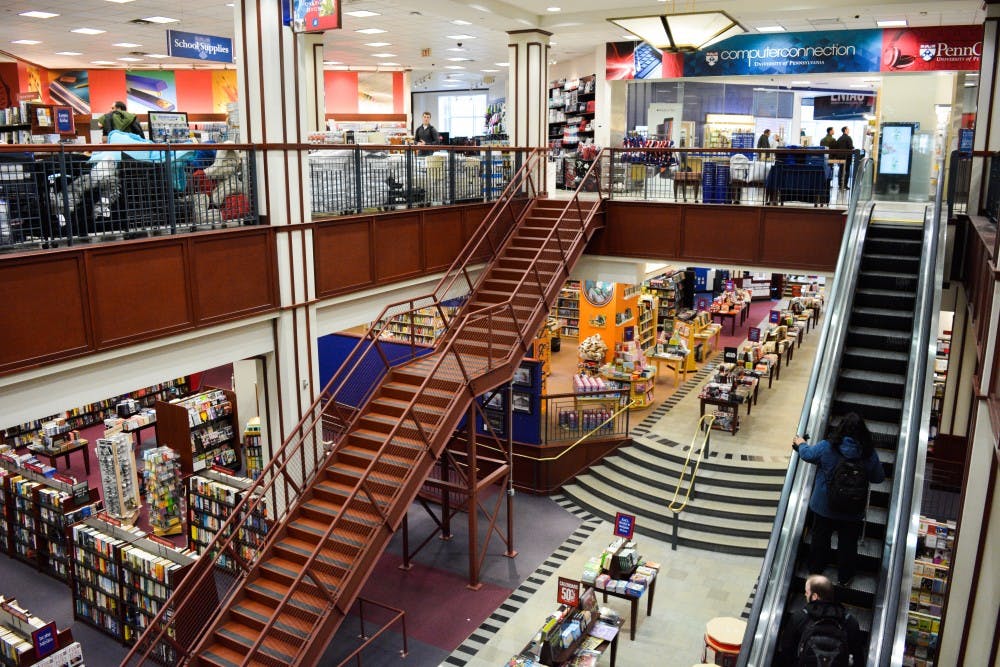
The Penn Bookstore has just completed the first phase of a major multi-year four-phase construction project.
The project, which began over winter break, will replace the escalators with newer models and will renovate the bathrooms, the elevator, and the cafe upstairs.
According to an announcement in the Penn Almanac, the construction schedule is designed "not to impede major University events."
“The store as a whole will stay open and maintain its regular hours,” Associate Vice President for Business Services Christopher Bradie said.
Some of the construction is scheduled to take place after business hours and potentially disruptive work will be halted during major events such as commencement and move-in, Bradie added.
Phase one of the project consisted of the construction of a temporary staircase, which is now in place, to provide an alternative path upstairs once the escalators undergo construction.
Phase two will include renovations to the bathrooms and elevators. While the bookstore itself will not close throughout this phase of the project, the upstairs Starbucks cafe will close for approximately two months, from February 2018 to March 2018, during phase two.
Management will relocate bookstore employees to other positions both within the bookstore and in local Barnes & Noble stores, Barbara Lea-Kruger, director of communications and external relations at Business Services, wrote in an email.
Phases three and four will consist of the removal and replacement of the escalators and, potentially, removal of the new staircase. Minor organizational renovations will also occur over the coming summer.
Bradie noted that while Barnes & Noble is ultimately responsible for the cost of the renovations, Penn will provide some financial support.
The last major renovations to the store took place in 2013, 15 years after the bookstore originally opened its doors in 1998. Bradie noted that the escalators have not been replaced since first being installed.
“The manufacturer is no longer in the escalator business, so that makes things like maintenance and serviceability more difficult because parts are more scarce and things like that,” Bradie said. “It’s not a current model.”
Bradie said, however, that he and others involved in overseeing the project may choose to leave the stairs in place after construction finishes.
“I think we should keep the stairs,” College freshman Saachi Datta said. “They are more convenient. You don’t have to walk all the way around to the other escalator.”
Bradie noted that phase one concluded on schedule and that phase two is expected to commence smoothly, with student accessibility still in mind.
“We were really thoughtful about how to do this major thing so that it wouldn’t impact students,” Lea-Kruger said.
The Daily Pennsylvanian is an independent, student-run newspaper. Please consider making a donation to support the coverage that shapes the University. Your generosity ensures a future of strong journalism at Penn.
Donate




